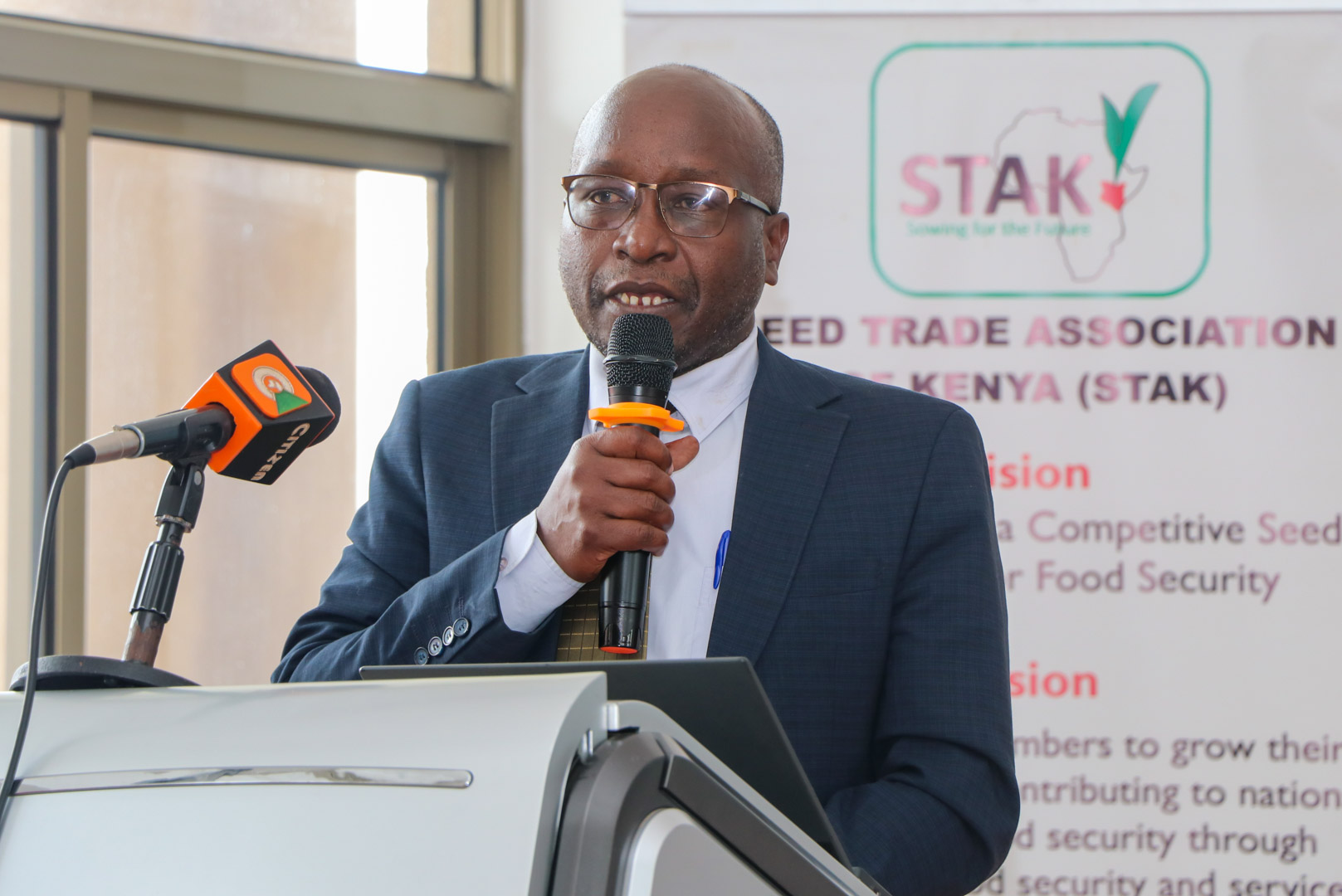State in push to enhance production of quality seeds
JOSEPH NG’ANG’A- KNA
The Government is reviewing the National Seed Policy, 2010 and developing a modern and more inclusive seeds and plant varieties law to increase production of quality seeds and fight counterfeits.
Agriculture and Livestock Development Cabinet Secretary (CS) Dr Andrew Karanja said the ministry is also working on strengthening related agricultural policies and legal frameworks that support integrated seed systems and local seed growers to produce quality seeds while enhancing industry competitiveness.
“In Kenya, where agriculture is a vital part of our economy, ensuring access to high-quality seeds is key to realising improved productivity and food security. It is essential that we develop a robust and sustainable seed sector that will not only enhance food security but also empower our farmers and stimulate economic growth,” the CS said.
Dr Karanja, in a speech read on his behalf by the Deputy Director-Crop Resources Management Leonard Kubok during the 12th Seed Trade Association of Kenya (STAK) Congress and Seed Expo, said Kenya has over the years developed a vibrant and competitive seed industry that stands out in the region and the continent.
“Our seed industry is liberalized, and the government’s role has remained that of sector regulation and quality control.
The Kenya Plant Health Inspector ate Service (KEPHIS) has continued to play a critical regulatory role in streamlining operations of the seed industry to ensure that farmers have access to quality seeds,” the CS said.
Dr Karanja said certified seed production has tremendously improved and seed companies continue to play an increasing role in research, breeding, production and trade of seeds of improved crop varieties.
“Despite the progress made, the seed industry continues to face significant challenges. Seed use and demand has increased particularly for maize seed with an annual maize seed requirement of 52,066 metric tons (MT) and beans seed requirements of 86,078 MT.
However, the supply by seed companies is not able to meet this requirement,” the CS explained.
Dr Karanja said the prevalence of counterfeit seeds remains a significant problem and despite efforts to implement security measures such as sticker labels to verify genuine seeds, many farmers still encounter fake products that lead to poor yields and financial losses.
The CS explained that access to quality certified seeds is often limited due to high costs, which can be prohibitive for smallholder farmers, adding that the price of good seeds is a barrier, particularly in sectors like potato farming, where farmers have expressed frustration over the affordability of certified varieties.
“The government, working through the Kenya Agricultural and Livestock Research Organisation (KALRO) and the National Gene Bank, continues to promote the establishment of community seed banks for local seeds, especially for categories of farmer-preferred seeds which private seed companies do not find attractive to produce,” Dr. Karanja said.

